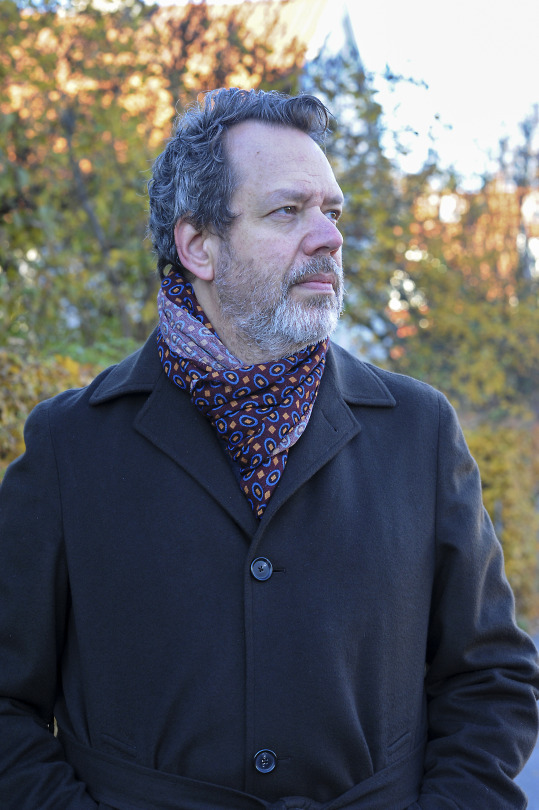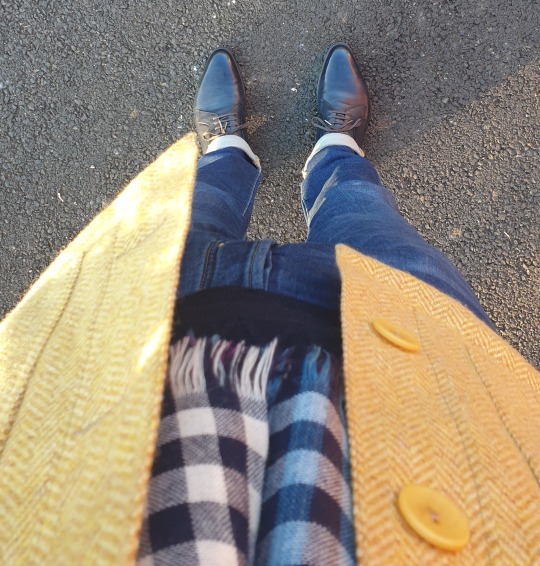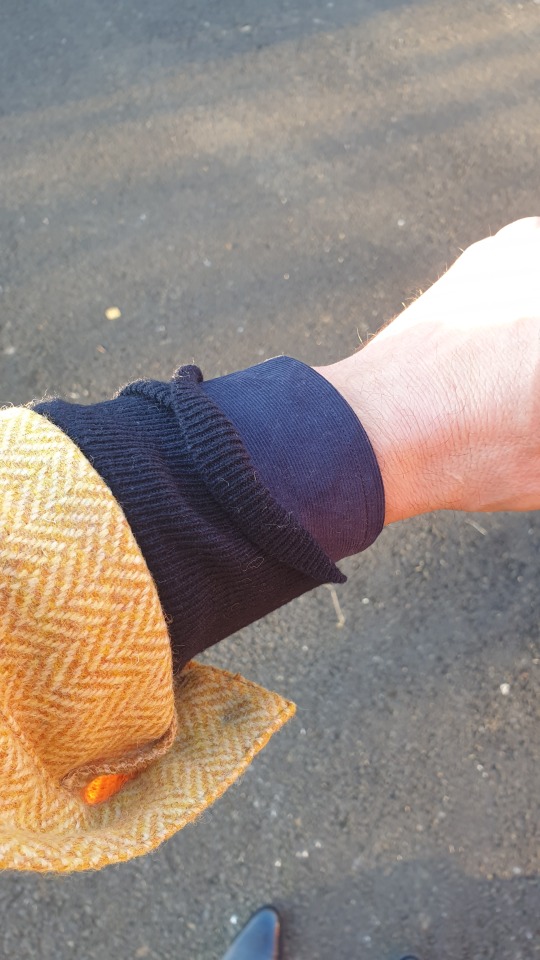#John Smedley
Explore tagged Tumblr posts
Photo

https://www.permanentstyle.com/2024/06/reader-profile-tetsuya.html
Reader profile: Tetsuya
#bernard zins#bryceland's#charvet#cifonelli#Hermes#John Lobb#john smedley#mes chausettes rouges#Rota#simonnot godard
54 notes
·
View notes
Text




Chris Evans in John Smedley and Eleventy Milano at the 'The Gray Man' Berlin Premiere (2022)
11 notes
·
View notes
Photo

Ross Lynch photographed by Sam Wilson for Wonderland, Spring 2018. Ross wears top John Smedley
88 notes
·
View notes
Text

John Smedley Polo Knit
#john smedley#letiquette magazine#pull#parisian style#parisian vibe#parisian homme#essential homme#lovefrenchisbetter#parisian mood#essentials#homme
9 notes
·
View notes
Photo




The Grey Turtleneck.
Coat from De Petrillo, Attolini jacket, turtleneck from John Smedley, Ströms trousers, Poszetka ps, shoes from Tricker’s and a Calabrese scarf. Scent: Profumum Roma Vir.
Also check out our website: Diplomatic Ties.
And if you are interested in music, check out: All Kinds of (Good) Music as well.
#menswear#mensfashion#mensstyle#Dapper#dandy#sprezzatura#tailoring#bespoke#ootdmen#scent#Perfume#olfactory#fragrance#de petrillo#cesare attolini#poszetka#ströms#trickers#Calabrese#John Smedley#profumum roma#vir#blockert#Diplomatic Ties
6 notes
·
View notes
Text


Le goût du jour : navy et Shetland jaune...
~ derby cinq oeillets ‘wan’ en impala patiné indigo par Siroeno Yosui, bottiers à Tokyo ;
~ jeans coton et laine, Jacob Cohen ;
~ tricot cachemire navy, John Smedley ;
~ chemise milleraie navy, Maison Lucca, Paris ;
~ écharpe en laine Shetland, Johnston of Elgin ;
~ bleu de travail version couture, ‘bleu Herringbone’, Soubacq, Paris.
3 notes
·
View notes
Text



JOHN SMEDLEY(ジョンスメドレー)
ポロシャツ
Style:MYCROFT WELTED SHIRT SS STANDERD FIT
Color: CHARCOAL
JOHN SMEDLEY(ジョン スメドレー)
ジョンスメドレーは、ファインゲージニットウェアをリードするブランドとして世界中に名前を知られています。1784年創業以来、現在に至るまでスメドレー家族によって経営されており、職人たちが230年以上にわたって築き上げた手作業の仕上げ技術を誇り、更なる革新を続けています。
ーーーーーーーーーー
PULP WAGON
北海道釧路市錦町5ー1 幅口ビル 1F
1 note
·
View note
Text

#tv shows#tv series#polls#teletubbies#john simmit#nikky smedley#pui fan lee#1990s series#british series#have you seen this series poll
69 notes
·
View notes
Text


—Amsterdam (2022)
Directed by David O. Russell
#movies#amsterdam#christian bale#david o russell#margot robbie#zoe saldana#john david washington#rami malek#robert de niro#favorite movies#smedley butler
17 notes
·
View notes
Text
So, project 2025 has been deleting their PDFs but a few lovely people have posted the list of books they want to ban and other than the fact that the entire list is stupid, here's some that stuck out to me + the reasons listed next to them. Most of the books on the list are lgbtq+ books which one would expect to find there, so I just did ones I didn't expect.
The Holy Bible - Challenged for religious beliefs and graphic content.
A Game of Thrones by George R.R. Martin - Sexual violence, political intrigue.
Bridge to Terabithia by Katherine Paterson - Death and religious content.
Captain Underpants series by Dav Pilkey - Toilet humor and "disobedience."
Doctor Zhivago by Boris Pasternak - Critique of the Russian Revolution.
Deadly Deceits by Ralph McGehee - Former CIA agent's critiques of the agency.
Emma by Jane Austen - Complex gender themes, social critique.
Fahrenheit 451 by Ray Bradbury - Censorship and media manipulation by the government.
Harry Potter series by J.K. Rowling - Accusations of promoting witchcraft.
Howl by Allen Ginsberg - Explicit sexual content, anti-establishment themes
Hop on Pop by Dr. Seuss - Concerns over violence against parents.
I Am Not Your Perfect Mexican Daughter by Erika L. Sánchez - Mental health, sexual content.
It's Perfectly Normal by Robie H. Harris - Sex education content.
It's So Amazing! by Robie H. Harris - Sex education content.
None Dare Call It Conspiracy by Gary Allen - Discusses alleged hidden global power structure.
None Dare Call It Treason by John A. Stormer - Anti-communist and conspiracy-focused.
One Day in the Life of Ivan Denisovich by Aleksandr Solzhenitsyn - Critique of Soviet labor camps.
Operation Paperclip by Annie Jacobsen - Exposes secret U.S. program involving former Nazis.
My Brother Sam Is Dead by James Lincoln Collier - Violence, anti-war themes.
Slaughterhouse-Five by Kurt vonnegut- Anti-war themes.
Spycatcher by Peter Wright - Ex-MI5 agent's account of intelligence operations.
The Art of Happiness by the Dalai Lama - Criticism of religion, perceived political messages.
The Awakening by Kate Chopin - Female independence, sexuality.
The Book of Night Women by Marlon James - Slavery, graphic violence.
The Enchanted Forest Chronicles by Patricia C. Wrede - Magic, feminism.
The Giving Tree by Shel Silverstein - Themes of selfishness, parenting.
The God of Small Things by Arundhati Roy - Examines class and caste issues in India.
The Handmaid's Tale by Margaret Atwood - Critique of religious extremism and patriarchy.
The Hate U Give by Angie Thomas - Examines police violence and racial injustice
The Hunger Games Series by Suzanne Collins - Depicts oppressive government and rebellion.
The Phantom Tollbooth by Norton Juster - Political subtext, wordplay.
The Poisonwood Bible by Barbara Kingsolver - Critique of colonialism and missionary work.
The Power and the Glory by Graham Greene - Critique of religion and political oppression
The Power of Now by Eckhart Tolle - Religious critique.
The Prince by Niccolò Machiavelli - Seen as a critique of political ethics.
The Taming of the Shrew by William Shakespeare - Often challenged for themes of submission of women in marriage.
Twilight series by Stephenie Meyer - Themes of violence, supernatural elements.
V for Vendetta by Alan Moore - Political rebellion, violence.
War is a Racket by Smedley D. Butler - Critique of war profiteering.
Where the Sidewalk Ends by Shel Silverstein - Dark humor, "rebellious" themes.
Where the Wild Things Are by Maurice Sendak - Themes of rebellion, dark imagery.
Where's Waldo? by Martin Handford - Alleged inappropriate illustrations.
White Noise by Don DeLillo - Critique of consumerism and modern society.
Women Who Run with the Wolves by Clarissa Pinkola Estes - Feminist themes.
Yertle the Turtle by Dr. Seuss - Seen as political allegory.
Zorba the Greek by Nikos Kazantzakis - Critique of authority and societal norms.
159 notes
·
View notes
Note
not to be "that person" but the implications of calling half-galra/mixed galra/part galra, "hybrids" feels dehumanizing.
In a real-world context I'd be inclined to agree with you, but within the realms of the narrative there are several elements at play as to why I personally choose to use the term hybrid—chief among them being that race as we define it is a social construct (see below), whereas Keith & Lotor's status as hybrids very much has a biological basis—but let us first start by clarifying the key components of the topic at hand.
A race is a categorization of humans based on shared physical or social qualities into groups generally viewed as distinct within a given society.[1] The term came into common usage during the 16th century, when it was used to refer to groups of various kinds, including those characterized by close kinship relations.[2] By the 17th century, the term began to refer to physical (phenotypical) traits, and then later to national affiliations. Modern science regards race as a social construct, an identity which is assigned based on rules made by society.[3][4] While partly based on physical similarities within groups, race does not have an inherent physical or biological meaning.[1][5][6] [1] Barnshaw, John (2008). "Race". In Schaefer, Richard T. (ed.). Encyclopedia of Race, Ethnicity, and Society. Vol. 1. SAGE Publications. pp. 1091–3. ISBN978-1-45-226586-5. [2] Roediger, David R. "Historical Foundations of Race". Smithsonian. [3] Amutah, C.; Greenidge, K.; Mante, A.; Munyikwa, M.; Surya, S. L.; Higginbotham, E.; Jones, D. S.; Lavizzo-Mourey, R.; Roberts, D.; Tsai, J.; Aysola, J. (March 2021). Malina, D. (ed.). "Misrepresenting Race — The Role of Medical Schools in Propagating Physician Bias". The New England Journal of Medicine. Massachusetts Medical Society. 384 (9): 872–878. [4] Gannon, Megan (5 February 2016). "Race Is a Social Construct, Scientists Argue". Scientific American. Springer Nature. ISSN0036-8733. Archived from the original on 14 February 2023. Retrieved 1 March 2023. [5] Smedley, Audrey; Takezawa, Yasuko I.; Wade, Peter. "Race: Human". Encyclopædia Britannica. Encyclopædia Britannica Inc. Retrieved 22 August 2017. [6] Yudell, M.; Roberts, D.; DeSalle, R.; Tishkoff, S. (5 February 2016). "Taking race out of human genetics". Science. American Association for the Advancement of Science. 351 (6273): 564–565.
The dictionary definition of a hybrid is pretty clear-cut across the board, but I've included several different sources, for the sake of both clarity and peace of mind.
Oxford: [1] (of an animal or plant) Having parents of different species or varieties. [2] That is the product of mixing two or more different things. Cambridge: [1] A plant or animal that has been produced from two different types of plant or animal, especially to get better characteristics. [2] Something that is a mixture of two very different things. Merriam-Webster: [1] An offspring of two animals or plants of different subspecies, breeds, varieties, species, or genera. [2] A person whose background is a blend of two diverse cultures or traditions. [3] Something heterogeneous in origin or composition. Collins: [1] A hybrid is an animal or plant that has been bred from two different species of animal or plant. [2] You can use hybrid to refer to anything that is a mixture of other things, especially two other things.
So yes, the term hybrid is much more commonly used to refer to plants and animals than humans, with Merriam-Webster's definition alone being the only one to specify "people", but all the above agree that it is a term that references anything that is a mixture of two different things (heterogeneous). Scientifically speaking, humans are never this; we are all of the same species—homosapiens—and our perceived "race" is actually a societal construct born of phenotypical traits. So while objectively we can argue that Keith as a character was written as biracial, within the narrative he is very explicitly born of parents of two different scientific species: the term hybrid isn't being used to other him, it's,,, literally a genetic fact.
But let's approach this from Lotor's perspective. Our favourite galra prince is a scientist with "a modest background as a geneticist, [his] particular field of study being the rather niche subject area of galra hybridisation" (LB:ch13), meaning it's hardly surprising he'd feel comfortable using the scientific terminology. If ever the term hybrid was used in imperial circles as a slur intended to dehumanise (degalranise?), then Lotor as a hybrid himself has reclaimed it in much the same way that n-slur has been reclaimed the black community. I, myself, am not black, so I can't really speak to that experience, but I do not imagine the reclamation of that word to be dissimilar to that of queer by the queer community. Approaching it from this angle, I am personally happy to identify as queer, and equally happy for other people to identify me as queer; that being said, there's still intent to consider. Though I've no problem with (and in fact quite like!) the word queer, if a homophobe were to throw it at me with obviously malicious intent, it would still sting—not for the word itself, but the fact that the person using it is aiming to other and dehumanise, which begs the question: does the Empire consider hybrid to be a slur?
Personally, I don't think so. I certainly don't write LB with that in mind, but what I do do is apply that sort of a weight to "half-breed" given that canon made particular use of it as a derogatory term, most notably with Throk in s3ep01—"Worse than that, [Lotor's] top generals aren't even pure galra, they're half-breeds at best. He has no honour."—and Haggar in s5ep04—"The blood that so bolsters your claim is also what quells it! You are not full galra, you are a half-breed."—both of whom put a distinctly unkind spin on this term with both their tone and the context within which they use it (to discredit the inherent "worth" of hybrids). In Little Blade, it has thus-far been used twice, both by Lotor and both when he's evidently echoing cruel sentiments that he himself suffered in the past:
“Impure half-breeds we may be, but weak we are most certainly not.” It’s a cold sort of pride. - Lotor, Little Blade, chapter 15 “Any commander worth his quintessence would be able to subdue a mere cadet with ease, especially one so small as you.” the amused lilt Lotor says this with fades in favour of something sweet and deeply saddened, “As for the rest of it—the neglect you suffered as a child—that would never have happened had you been raised galra. Even if we are half-breed whelps, our value is in our blood: it is an irrefutable part of us.” blue eyes turn baleful, “The Empire, for all its faults, would not have forsaken you.” - Lotor, Little Blade, chapter 24
So no, within the context of LB, hybrid is not a derogatory term, but a scientific one that Lotor, his generals, and Keith all identify with and use to encompass the rather unique experience of their lineage in a universe where both sides of their parentage are likely to other them for simply existing as they are.
#'hybrid' was never intended to be any more or less insulting than 'half-galra'#though tbh I would have thought that the idea of him being 'half' one thing and 'half' another would be worse if anything?#like... i'm not 'half' gay and 'half' straight... I'm bisexual#one term to encompass ALL of me rather than dividing it up into two groups of which i am neither#Ao3 Little Blade#sa screams back#keith kogane#prince lotor#galra girl gang#tw: racism
29 notes
·
View notes
Text
Repost from IG: ilariaurbinati


Chris is wearing:
👕: John Smedley Knitwear and Cottoncitizen
🧦: London Sock Company
9 notes
·
View notes
Text

Christian Ovonlen: John Smedley x Intoart, Printed Scarf
4 notes
·
View notes
Photo

Ross Lynch photographed by Sam Wilson for Wonderland, Spring 2018. Ross wears top John Smedley
97 notes
·
View notes
Text
Are Red Bull Catchable? Smedley And Pedro's Spring Break Wrap | F1 Nation Podcast
Red Bull have been unstoppable so far in 2023. They’ve taken three pole positions and three victories in the first three races. So can the reigning World Champions be caught this season? Tom Clarkson is joined by former McLaren driver Pedro de la Rosa and ex-Ferrari race engineer Rob Smedley to discuss how the rest of the grid can maximise a month without racing to close the gap. Lapo Elkann, the brother of Ferrari President John Elkann, has urged Ferrari to “wake up” as they sit fourth in the Constructors’ Standings, after a difficult start to the season. Rob shares some intriguing insight into just how high the standards are at Ferrari and how much influence the Italian media has on the team. The guys also discuss the progress made by Williams and whether changes at McLaren will take the team forward. Will Alfa Romeo be title contenders in the near future? Plus, Rob and Pedro answer some of your questions in Ask The Nation. Record and send your questions to [email protected] For more F1® videos, visit https://www.Formula1.com Follow F1®: https://www.instagram.com/F1 https://www.facebook.com/Formula1/ https://www.twitter.com/F1 https://www.twitch.tv/formula1 https://www.tiktok.com/@f1 #F1 via FORMULA 1 https://www.youtube.com/channel/UCB_qr75-ydFVKSF9Dmo6izg
3 notes
·
View notes
